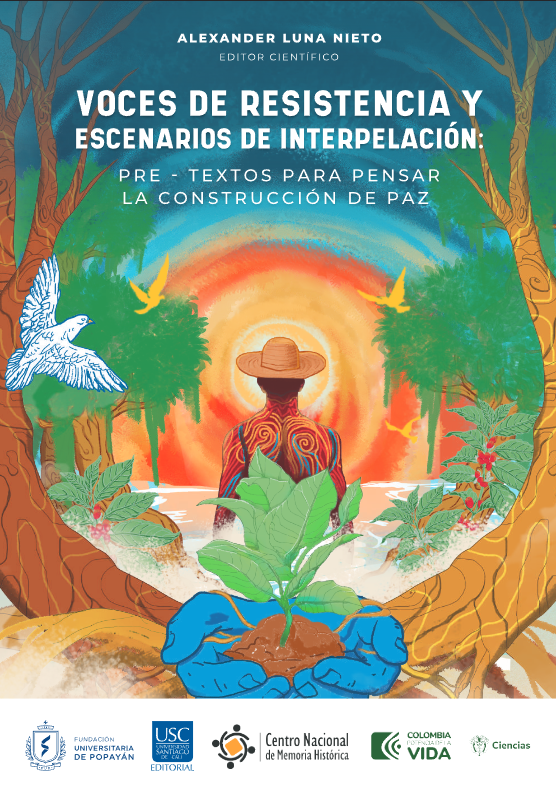“Hay futuro si hay verdad”
avatares de un condicional, una aproximación desde la alteridad levinasiana

Download Url(s)
https://libros.usc.edu.co/index.php/usc/catalog/view/605/829/12188---
https://libros.usc.edu.co/index.php/usc/catalog/view/605/829/12188
Author(s)
Aguirre García, Juan Carlos
Version
PublishedLanguage
SpanishAbstract
The aim of this chapter is to propose a philosophical reading of certain sections of the Final Report of the Truth Commission (2022), especially the initial sections, based on a conception of truth called by the philosopher Emmanuel Levinas as the Truth of Testimony. To achieve this purpose, I start by presenting the distinction between the truth of the revelation and the truth of the testimony; subsequently, I show how some sections of the Final Report are related to the truth of the testimony; finally, I con-clude by ratifying that a truth, whose basis is justice, understood as re-sponsibility for the other, undoes any possibility of avoiding issues aimed at the freedom of the Same. El objetivo de este capítulo es proponer una lectura filosófica de ciertos apartados del Informe final de la Comisión de la verdad (2022), en especial, los apartados iniciales, a partir de una concepción de verdad denominada por el filósofo Emmanuel Levinas como Verdad del testimonio. Para alcanzar este propósito, se inicia presentando la distinción entre verdad del desvelamiento y verdad del testimonio; posteriormente, se muestra cómo algunos apartados de dicho Informe final son afines a la verdad del testimonio; finalmente, se concluye ratificando que una verdad, cuya base es la justicia, entendida como responsabilidad para el otro, deshace toda posibilidad de eludir cuestiones dirigidas hacia la libertad del Mismo.

